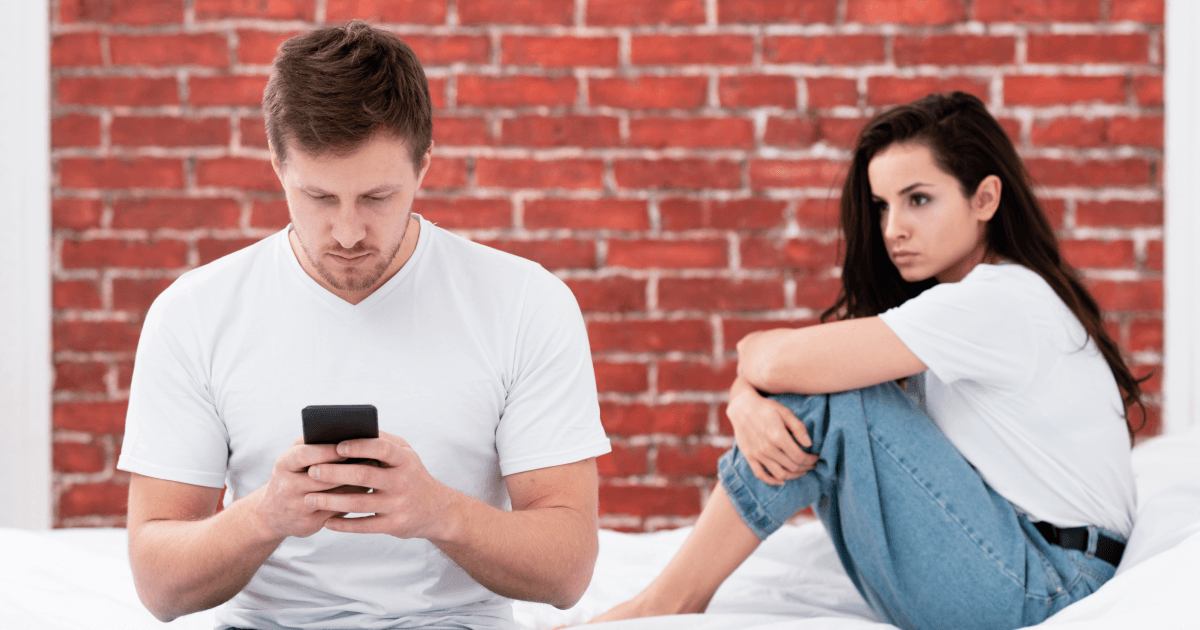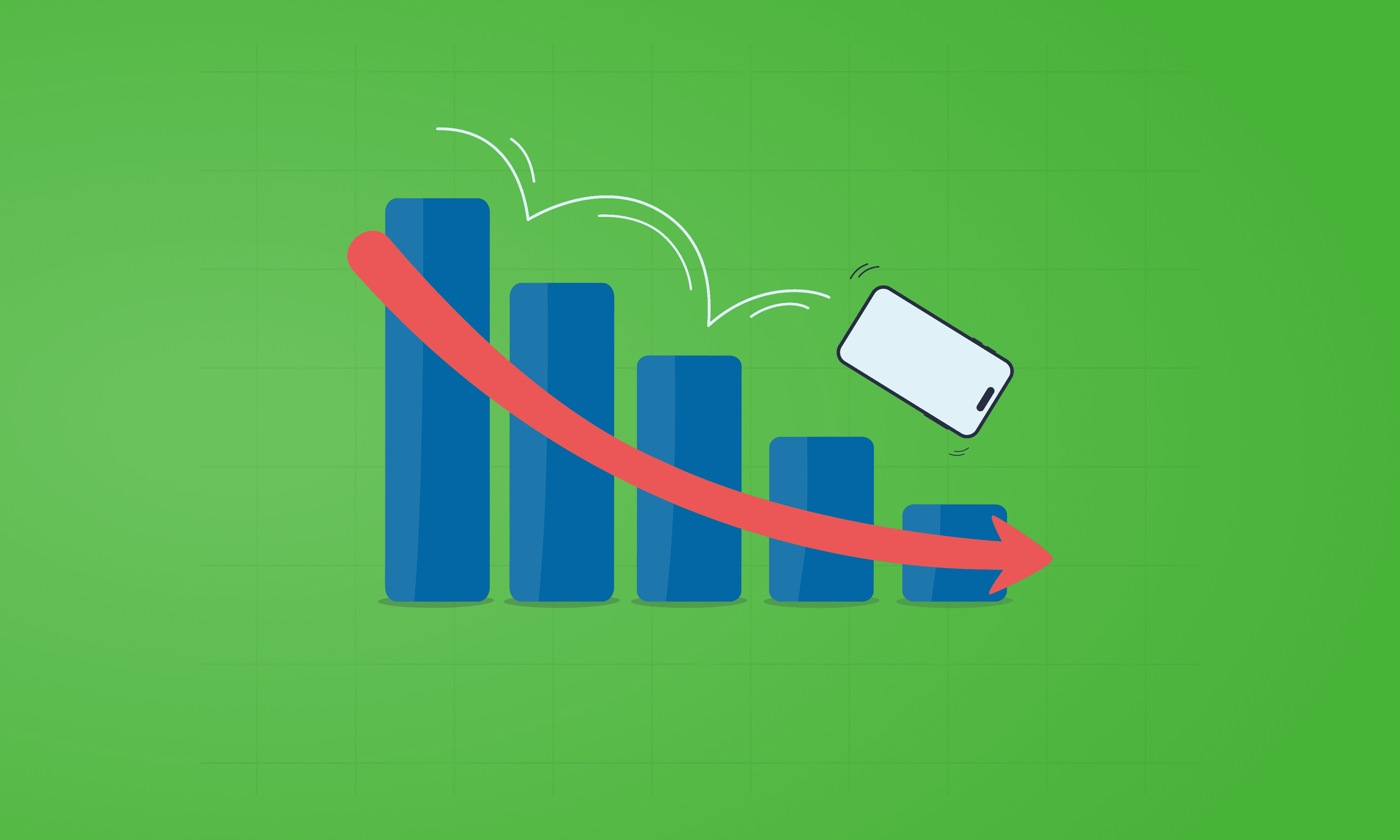Phubbing - ignoring people for your phone - is hurting relationships. Discover how scrolling affects bonds and what you can do about it.

Written by Yasmin Maagbe, Content and PR Executive | Environment and Consumer Electronics
Last updated on 17 December 2025

Ever been in a situation where you're pouring your heart out to someone, only to realise they're more interested in their mobile phone than having a conversation? Well, you may have experienced a classic case of ‘phubbing’. Phubbing is a term describing the act of someone ignoring another person in an in-person interaction in favour of their mobile phone. Basically they are more interested in their mobile phone than they are with the person sitting right across from them! In a world dominated by mobile phones, ‘phubbing’ has become a commonality within relationships of all types. Naturally, this has put a strain on our interactions and relationships, which is why we want to dive into this digital dilemma and explore how our need to swipe, scroll, and double-tap is sabotaging our human interactions and how to stop it from ruining our relationships.
The phenomenon of 'phubbing' got termed in 2012 and is simply a combination of the words ‘phone’ and ‘snubbing’ which is used to describe the act of ignoring or not engaging with a person in real-life interactions due to being tempted to use a mobile phone. Now, when you're the unlucky one on the receiving end, you’ll be known as the ‘phubbee’, and it's like being in a one-sided conversation with a brick wall. The ‘phubber’, on the other hand, is immersed in a digital world, oblivious to the heavy sighs coming their way.
But, phubbing is more than just a pet peeve. Imagine yourself out with a friend trying to get some important advice and they are sitting staring at their mobile phone as if your issues just didn’t matter at all. Not exactly the advice you had in mind, right? Ultimately, being constantly phubbed can make you feel like all your experiences and emotions are competing with Snapchat streaks and Instagram updates for attention. It's a relationship buzzkill, and it chips away at the genuinity of human connection. This is not only mutually exclusive to romantic relationships, many of us feel neglected in our friendships as well as the relationships in our family. The worrying issue is that our ever-growing dependence on technology has begun to sabotage relationships.
Studies have pointed fingers at phubbing as a relationship wrecker. It's something that slowly erodes the emotional connection within relationships and is an issue that will only get worse if not acknowledged and policed.
A study carried out by Professor Karen Douglas and Dr Varoth Chotpitayasunondh, highlights that phubbing is linked to becoming socially excluded. Social exclusion can have negative consequences on four essential human needs:
the necessity for belonging,
the requirement for self-esteem,
the need for meaningful existence,
the desire for control.
This just proves that phubbing therefore displays so many of the most common characteristics of social exclusion. When you are constantly being ignored or made to feel as though what you have to say is unimportant and not interesting enough, then overtime you will begin to feel excluded. Other side effects include feeling ostracised as well as suffering with negative moods which, overall, will cause anyone to feel unimportant and a heightened sense of stress. If subjected to repeat phubbing, conflict and cases of violence may occur.
"It seems a phone's very presence reduces our ability to pay attention to anything else. I now leave my phone in another room when we eat. It seems to be working."
For both the phubber and phubbee, the perspective of how it affects them is completely different. The obvious reason is due to the fact that the phubber may not actually realise they are ignoring their partner, friend or family member in favour of their mobile phone. For them it might be perceived as they are multitasking. Of course for the phubbee, it’s a very different story because oftentimes they feel rejected, not being listened to, unimportant and left with a horrible case of low self-esteem or loneliness.
Similar to mobile phone addiction, the reasons behind phubbing include some of the same characteristics of why we just can’t get enough of our phones. For starters, studies have shown that the reason why we can’t stop scrolling down our feeds is due to our brain continuously chasing dopamine. Dopamine is a neurotransmitter in the brain that plays a key role in pleasure, reward, and motivation. So you can probably guess that the reason we are sometimes glued to our phones, when we could be having meaningful in-person conversations, is all because our brain is chasing that feel good hit of dopamine.
For many, acknowledging and addressing the issue of phubbing in their relationships is no easy task but realising that you are a phubber, is just as hard.
Have you ever thought about assessing your overall smartphone usage? Well, it’s worth utilising features such as Screen Time because it may provide you with a reality check based on how much attention you really devote to your mobile phone. Not only this, but if your nearest and dearest have caught on to the extent of how much time you're dedicating to your device, then this is your sign to start leaving your phone behind.
Let’s take a look at the classic signs which indicate you may actually be phubbing your nearest and dearest:
If you can’t sit through a meal without checking your mobile phone, then there is a high chance you may be a phubber. Even having your phone out on the table can interfere with the connection between two people having a conversation over dinner.
You constantly get out and check your phone in social settings.
You check your phone as soon as it rings or pings.
You can’t stop scrolling in bed even when your partner is lying right next to you.
If you’re out with friends, you constantly check your phone for messages from other people.
On the flip side, you may want to identify the classic signs of whether or not you are being phubbed…
You find yourself having to repeat yourself in conversations due to the other person focusing on their mobile phone instead of what you are saying.
You are cut off mid sentence because the person you are talking to answers their phone as though what you are saying is unimportant in comparison.
You notice that your friend, family member or partner takes their mobile phone everywhere including the bathroom, dinner table and bedroom.
If a conversation dies down between yourself and the other person, they immediately reach for their phone to fill the awkward silence instead of initiating conversation.
You are met with half hearted replies during a conversation with them because they are too busy on their phone.
Of course there will be situations where you have no choice but to phub someone due to an emergency or you receive an important call that you must take. A way in which you can make a difference, is by letting the other person know that it is urgent and also by keeping the call or text short to ensure they do not start to feel excluded. This is sure to go a long way!
As the phubbee, you must be the one that approaches the issue of phubbing in a conversation. This is because the person committing the offence may not even realise they are doing it. The goal is to attempt to shed light on what they are doing, how they are making you feel and provide some sort of insight into how they can manage the issue of Phubbing within the relationship. If you are a Phubbee and are willing to approach the issue of phubbing with a close friend, family member or partner, then it is worth having a think about the best way to do it.
As you know, approaching any topic that requires you to challenge the perspective of the other person can be difficult. Having a balance between letting the phubber understand this issue is affecting you and your mutual relationship, without being accusatory, and also trying to facilitate a more receptive conversation, is hard. But here are a few ways you can avoid any further tension when it comes to talking about phubbing and resolving the issue:
Oftentimes, phubbers do not even realise they are phubbing someone and making them aware of it in the first place is a good start. With a no-blame attitude, addressing it in an honest and direct conversation while offering solutions may be the catalyst.
Help to refocus them and be understanding. Sometimes, those who suffer from social anxiety tend to turn to their mobile phones for comfort. So ensuring that you show you want to understand their excessive use of their phone, identify causes behind it and provide solutions can be an effective way to combat the issue.
Incorporate activities that do not require mobile phones when spending time together.
Set no phone-zones, for example dinner time or bedroom, in order to foster genuine conversations and connection and go out of your way to abide by the rules.
Consider a smartphone detox. This is a great way to detach yourself from your mobile phone and can also help you reconnect within your relationships.
If you feel as though the above ideas have not helped, then it is best to seek professional help on what the next steps are for you.
These steps are guidance for how to deal with phubbing in a relationship, so it is important to note that everyone is different and only you know which approach will be most effective. Remember, the objective is to prompt self-awareness rather than evoke defensiveness!
So, it’s pretty clear that phubbing can cause more harm than good. From understanding the importance of tackling and acknowledging it within your relationships, to getting to the root of what actually causes us to become so addicted to our phones, phubbing is a serious topic that needs to be addressed. Tackling phubbing is also crucial in improving in person relationships and intimacy between people and by understanding it, it will enable us to come up with effective strategies to combat phubbing. Society must also do its part in challenging the norms that prioritise virtual interactions over genuine human connection. By acknowledging this, we can foster healthier, more fulfilling relationships in our increasingly digital world.

The iPhone used to define innovation. Now every new model feels the same. Is Apple’s story running out of pages?

See which Apple, Samsung and Google phones hold their value best over the first and second year on the market.
With Pixels becoming a decent contender for your upgrade choice, we’ve crunched the numbers to reveal depreciation patterns of Google Pixel phones.